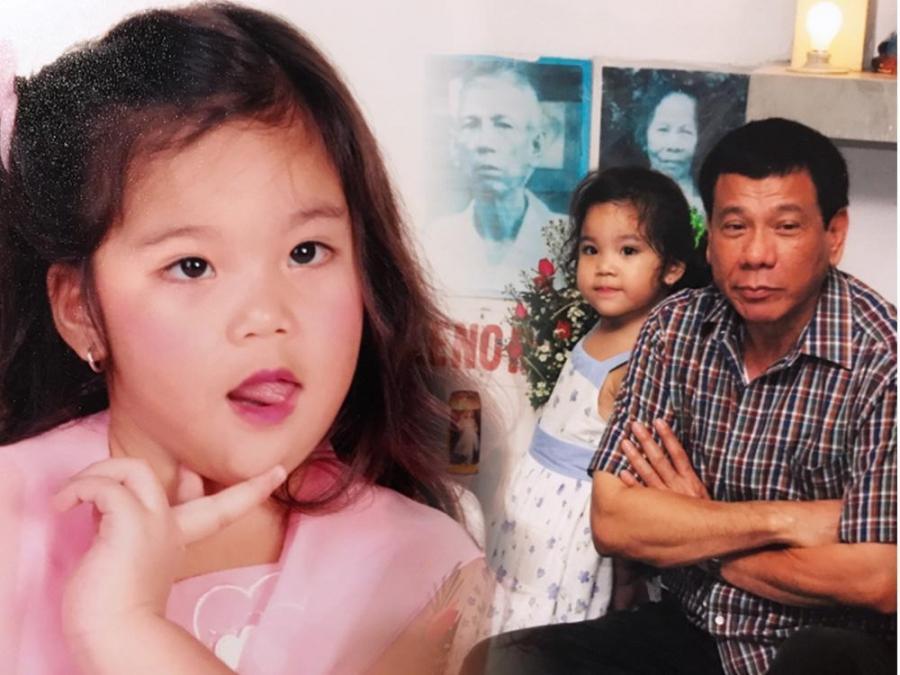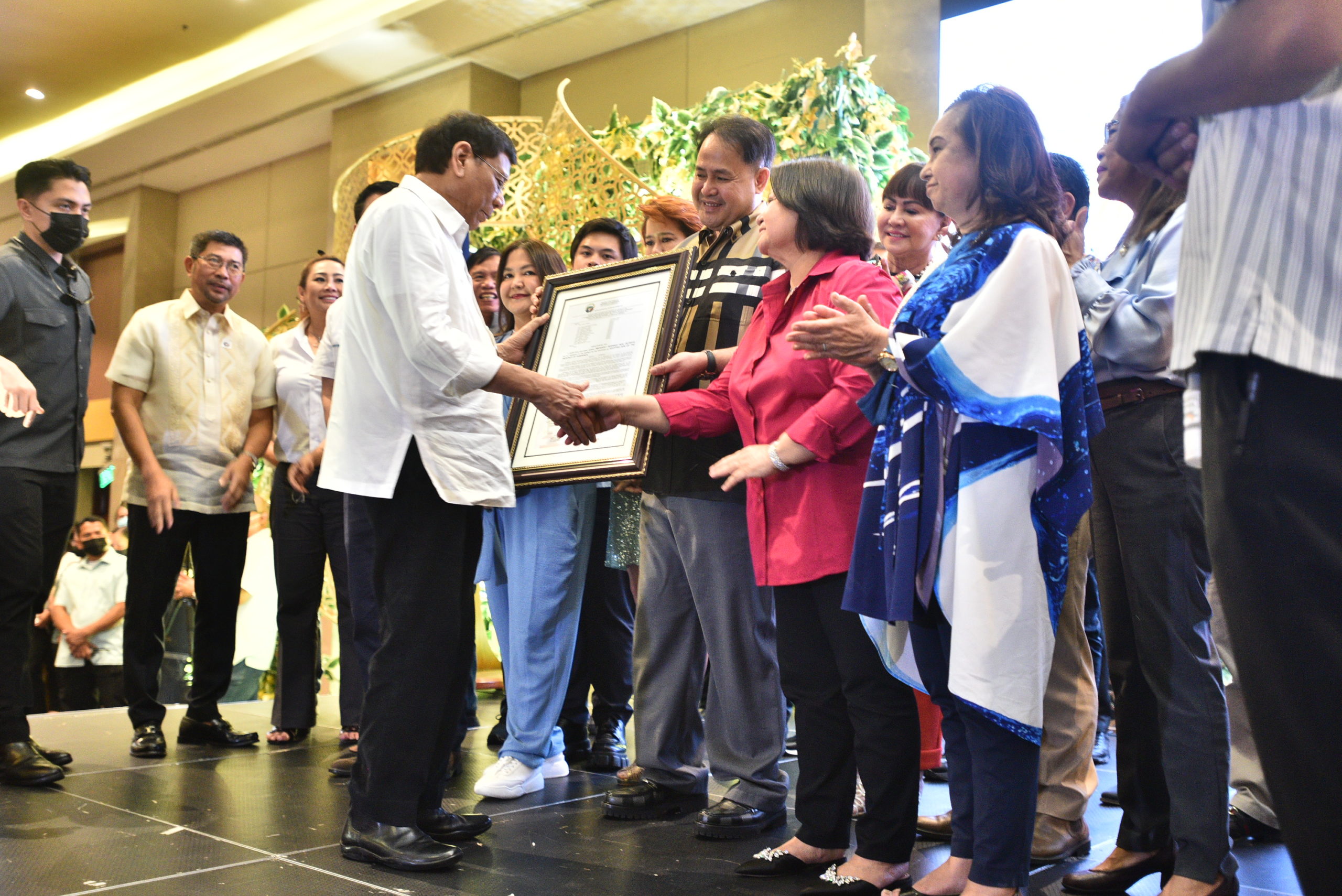The question of whether Mira Duterte is adopted has captured the imagination of many, especially as the Duterte family remains one of the most influential political families in the Philippines. Mira Duterte, the youngest child of former President Rodrigo Duterte, has become a central figure in media discussions. Despite her existence being revealed only in recent years, the intrigue surrounding her biological ties and potential adoption continues to fascinate and engage the public.
Mira Duterte's story transcends the boundaries of a family's personal life, intersecting with politics, media narratives, and public perception. As new details emerge about her life, understanding her background becomes increasingly important for those following the Duterte family's evolving story. This article aims to uncover the truth behind Mira Duterte's adoption by examining credible sources and addressing key questions.
This analysis is designed to provide a thorough examination of the topic while upholding journalistic integrity and ethical standards. By the conclusion, readers will have a clearer understanding of the facts surrounding Mira Duterte's adoption and its broader implications for the Duterte family's legacy.
Read also:What Happened To Carolin Bacic
Table of Contents
- Mira Duterte's Life and Background
- Is Mira Duterte Adopted?
- The Duterte Family Legacy
- Public Reaction to Mira Duterte's Adoption
- Legal Implications of Adoption in the Philippines
- The Role of Media in Shaping Public Perception
- Political Impact of Mira Duterte's Adoption
- Mira Duterte's Personal Life and Achievements
- Debunking Myths About Mira Duterte's Adoption
- Conclusion
Mira Duterte's Life and Background
Early Life and Family Roots
Mira Duterte, whose full name is Maria Josefa Duterte-Carpio, was born on January 2, 1995, in Davao City. She is the youngest child of former Philippine President Rodrigo Duterte and his ex-wife, Elizabeth "Elsie" Carpio. Mira's early life was largely kept private, and she only gained widespread public attention following her father's rise to the presidency in 2016. The media spotlight has since illuminated her life, making her a focal point for discussions about the Duterte family's dynamics.
Below is a summary of Mira Duterte's biodata:
| Full Name | Maria Josefa Duterte-Carpio |
|---|---|
| Date of Birth | January 2, 1995 |
| Place of Birth | Davao City, Philippines |
| Parents | Rodrigo Duterte and Elizabeth Carpio |
| Education | University of the Philippines (UP) Diliman |
Education and Professional Pursuits
Mira Duterte pursued her education at the prestigious University of the Philippines (UP) Diliman, where she graduated with a degree in Political Science. Her academic achievements exemplify her dedication to excellence and her passion for public service. While she has yet to enter formal politics, her involvement in various civic activities indicates a promising future in public leadership. Her career path, distinct from her siblings, highlights a unique trajectory for the younger generation within the Duterte family.
Is Mira Duterte Adopted?
The question of whether Mira Duterte is adopted has been a subject of heated debate. According to official statements from the Duterte family, Mira is not adopted but is the biological daughter of Rodrigo Duterte and Elizabeth Carpio. However, the limited public disclosure regarding her early life has fueled speculation and misinformation. Legal documents and interviews with family members affirm that Mira Duterte is indeed the biological child of the former president. Despite this, some conspiracy theories persist, alleging that her adoption was concealed for political reasons. These claims, however, lack credible evidence and are generally dismissed by experts and insiders.
The Duterte Family Legacy
The Duterte family has been at the forefront of Philippine politics for decades. Rodrigo Duterte's presidency (2016-2022) brought about significant changes both domestically and internationally. His family, including his children, has played a pivotal role in shaping his political career and legacy. Mira Duterte's emergence as a public figure adds another layer to the family's storied history. While her siblings, such as Sara Duterte-Carpio, have been more active in politics, Mira's focus on education and civic work underscores a different path for the younger generation of the Duterte family.
Public Reaction to Mira Duterte's Adoption
Media Coverage and Public Curiosity
The revelation of Mira Duterte's existence ignited widespread interest in the media and among the public. Many Filipinos were eager to learn about her background and the circumstances surrounding her upbringing. Some viewed her as a symbol of the Duterte family's resilience, while others questioned the veracity of her claims. Social media platforms like Twitter and Facebook played a crucial role in shaping public opinion, with discussions and debates flooding these channels. The Duterte family's reluctance to divulge detailed information only deepened the mystery, fueling further speculation.
Read also:Irene Banerjee
Support and Criticism
Public reaction to Mira Duterte's adoption has been varied. Supporters of the Duterte family have commended her for maintaining a low profile and prioritizing her education and personal development. Critics, however, have expressed concerns about the transparency of the family's narrative and called for greater accountability. This divergence in public opinion highlights the complex interplay between politics, media, and personal lives in modern-day Philippines.
Legal Implications of Adoption in the Philippines
In the Philippines, adoption is governed by the Domestic Adoption Act of 1998 and the Intercountry Adoption Act of 1995. These laws ensure that the rights of both adoptive parents and adopted children are safeguarded. Although Mira Duterte is not adopted, understanding the legal framework surrounding adoption in the country provides valuable context for the debate surrounding her background. Key aspects of adoption in the Philippines include:
- Adoption is a formal legal process that establishes a parent-child relationship between adoptive parents and adopted children.
- Adoptive parents have the same legal rights and responsibilities as biological parents.
- The process involves rigorous background checks, counseling, and court approval to ensure the child's best interests are prioritized.
The Role of Media in Shaping Public Perception
The media plays a critical role in shaping public perception of political figures and their families. In the case of Mira Duterte, media coverage has been both advantageous and challenging. While it has provided valuable insights into her background, it has also contributed to the spread of misinformation and conspiracy theories. Journalists and media organizations must adhere to ethical standards when reporting on sensitive topics like adoption. By prioritizing accuracy and fairness, they can help cultivate a more informed and engaged public.
Political Impact of Mira Duterte's Adoption
The question of Mira Duterte's adoption carries significant political implications, particularly in a country where family ties are often scrutinized. Critics argue that the Duterte family's handling of the issue raises concerns about transparency and accountability. Supporters, however, view it as a private matter that should not overshadow the family's contributions to the nation. As the political landscape in the Philippines continues to evolve, the Duterte family's legacy will undoubtedly influence future discussions. Mira Duterte's potential involvement in public service could further shape these conversations.
Mira Duterte's Personal Life and Achievements
Despite the attention surrounding her family, Mira Duterte has successfully carved out her own path. Her dedication to education and civic work exemplifies her commitment to making a positive impact on society. Although she has not yet entered formal politics, her involvement in various initiatives suggests a promising future. Notable achievements in Mira Duterte's personal life include:
- Graduating with honors from the University of the Philippines (UP) Diliman.
- Participating in numerous civic activities and community service projects.
- Maintaining a low profile despite her family's high-profile status.
Debunking Myths About Mira Duterte's Adoption
Several myths and misconceptions surround Mira Duterte's adoption. Below are some of the most prevalent myths and the truths behind them:
- Myth: Mira Duterte was adopted to conceal her true identity.
Truth: Legal documents and family statements confirm that Mira is the biological daughter of Rodrigo Duterte and Elizabeth Carpio. - Myth: The Duterte family has hidden information about Mira's adoption.
Truth: The family has been transparent about Mira's background, providing official statements and documentation when necessary. - Myth: Mira Duterte's adoption is politically motivated.
Truth: There is no evidence to suggest that Mira's background is linked to political motives.
Conclusion
The question of whether Mira Duterte is adopted has sparked widespread curiosity and debate. Through this article, we have explored the facts surrounding her background, debunked common myths, and examined the broader implications of her story. Mira Duterte's life is more than just a family narrative; it reflects the intricate interplay of politics, media, and public perception in contemporary Philippines. As we conclude, we encourage readers to seek credible sources and engage in informed discussions about this topic. Your feedback and questions are invaluable to us. Please feel free to leave a comment below or share this article with others who may find it interesting. Together, we can foster a more informed and engaged community.


